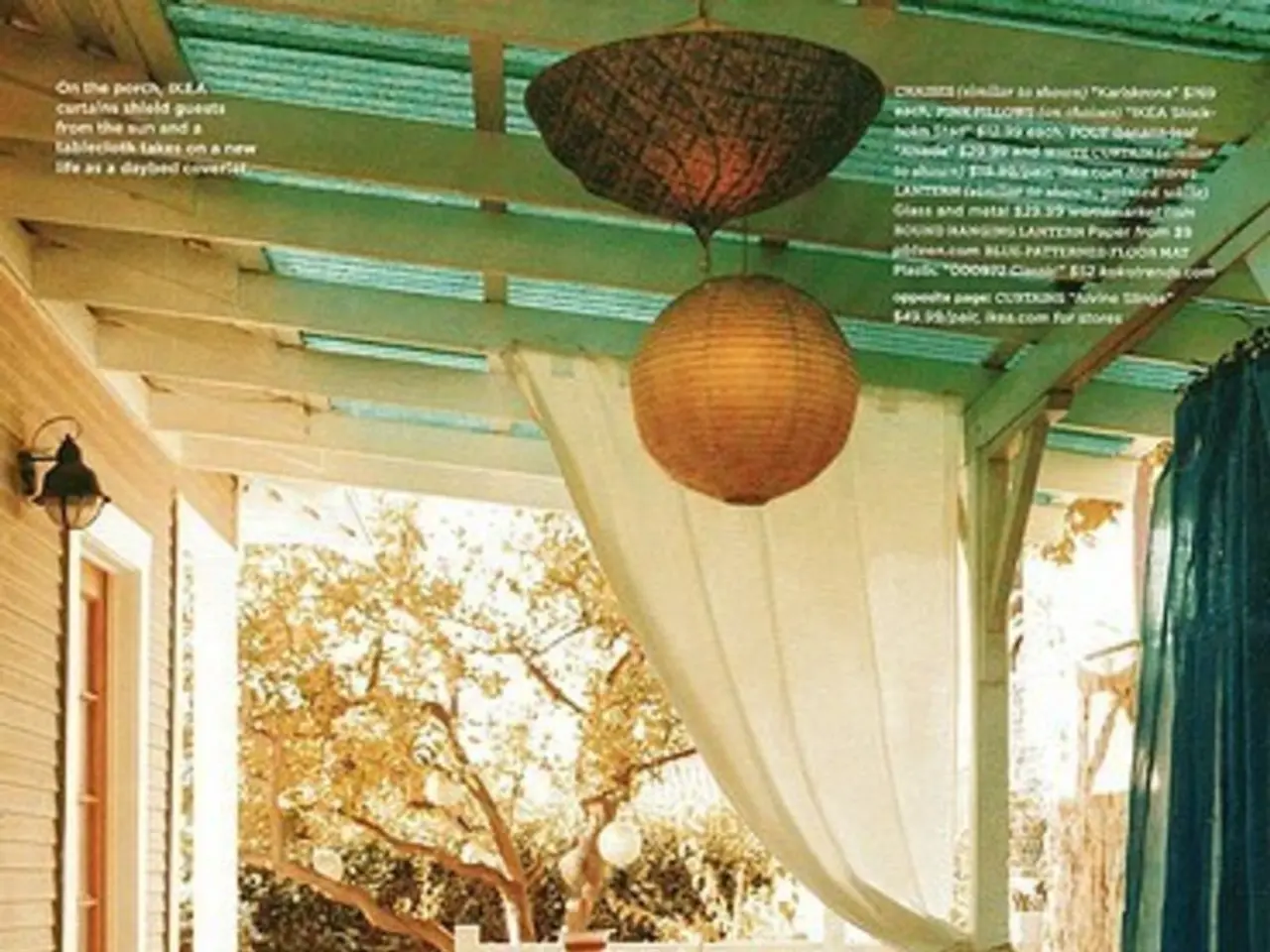Repurposed Trash from Hotels Transforms into Eco-Friendly, Fashionable Furniture in Bali
In the heart of Bali, at the Desa Potato Head hotel, designer Max Lamb has created a stunning collection of sustainable furniture. The collection, born from the hotel's waste materials, includes chairs, tables, lamps, coasters, and trays, each piece a testament to the power of recycling and the beauty of unconventional materials [1][2][3].
Lamb's design process spanned five years, focusing on collaboration with Balinese craftspeople to develop techniques that work with the hotel's waste materials. This approach ensured the furniture retained a handmade feel, showcasing the materials' origins rather than hiding them [1][3]. The result is visually unique pieces with layered textures and organic patterns, a far cry from mass-produced furniture.
The furniture's unique textures are a result of compressed hotel linens, while the cooking oil creates wild, organic patterns on the furniture [1]. Each piece celebrates its waste origin, avoiding any pretense of being something else. The furniture is genuinely handmade, showcasing the human touch in every piece [1].
The furniture's materials are processed in on-site recycling facilities, where plastics are granulated and heat-pressed into sheets for various furniture items. For instance, chairs are made from around 833 recycled plastic bottles each, while coasters and trays feature multichromatic patterns [4][5].
This project reflects a zero-waste hospitality model, with over 99% of the hotel’s waste recycled, minimising landfill use to just 0.5% [2][4]. It integrates sustainability with aesthetic innovation, turning discarded materials into celebrated design objects that spark conversation and embody environmental responsibility [1][3].
By sustaining traditional skills through this collaboration, Lamb's approach challenges conventional furniture production norms. It provides employment opportunities in Bali, keeping traditional craftsmanship alive [1]. This innovative project is a shining example of how waste can be transformed into something beautiful and meaningful, proving that sustainability and design can go hand in hand.
- The unique collection of furniture created by Max Lamb at the Desa Potato Head hotel in Bali, incorporating tools like compressed linens and cooking oil, represents a break from the monotony of mass-produced furniture, with the furniture's layered textures and organic patterns showcasing its recycled origins.
- The furniture pieces, born from the hotel's waste materials and cooperatively developed with Balinese craftspeople, serve as sketches or samples of sustainable living, demonstrating that even fashion-and-beauty or home-and-garden items can be created with a minimal environmental footprint.
- The design process, spanning five years and resulting in visually distinctive pieces, embodies a lifestyle that values sustainability and deftly combines it with aesthetic innovation, contributing to the events of a zero-waste hospitality model and keeping traditional craftsmanship alive in Bali by providing employment opportunities.





